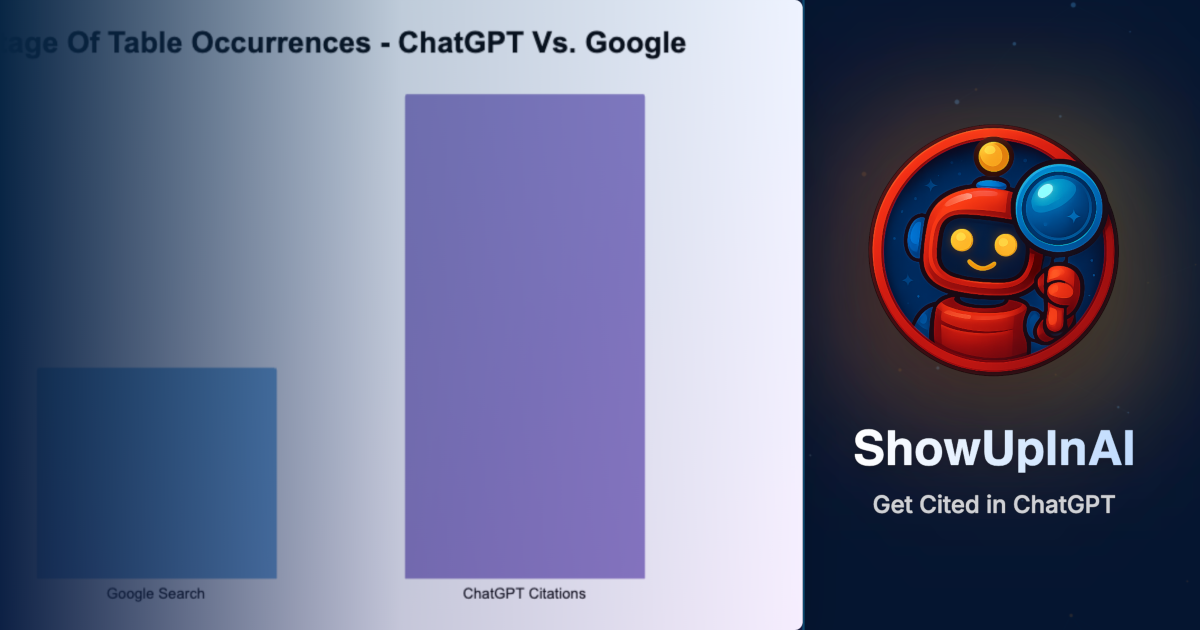GEO: Complete Guide to Generative AI Visibility 2025
Learn GEO (Generative Engine Optimization) strategies that work for ChatGPT, Copilot, and Perplexity. Research-backed tactics, not AI visibility myths.

You've probably noticed it by now.
Your users aren’t just searching on Google anymore — they’re asking ChatGPT for product recommendations, consulting Copilot for research, and trusting Perplexity to synthesize insights from multiple sources.
And here’s the reality: if your content isn’t optimized for AI assistants, you’re invisible in those conversations.
Welcome to GEO (Generative Engine Optimization) — the next evolution of content discovery that goes beyond traditional SEO.
This isn’t about gaming algorithms or chasing backlinks. It’s about understanding how AI assistants discover, evaluate, and cite your content. And most of what’s being said about “AI SEO” today is either outdated or based on speculation.
What Is GEO (Generative Engine Optimization)?
GEO—Generative Engine Optimization—is the practice of making your content discoverable, understandable, and citable by AI assistants like ChatGPT, Microsoft Copilot, and Perplexity.
Traditional SEO optimized for how search engines ranked pages. GEO optimizes for how AI models interpret and reference content when answering user questions.
Traditional SEO: “Here’s my page about productivity tools.” GEO: “Here’s comprehensive, clearly written information about productivity tools that AI can understand, verify, and cite with confidence.”
Why GEO Matters in 2025
A quiet but major shift has taken place.
Google’s &num=100 parameter is gone, closing the door on the deep search results that many tools and AI systems relied on. Without that access, AI assistants have shifted even more heavily toward Bing as their discovery layer.
The New Reality: Bing powers ChatGPT’s browsing, underpins Microsoft Copilot’s results, and is among the key data sources used by Perplexity.
If your pages aren’t indexed quickly in Bing, they’re unlikely to appear in AI-powered responses.
That’s why fast Bing indexing — not just “good SEO” — has become a cornerstone of GEO.
The 2025 GEO Strategy: What Actually Works (Research-Backed)
Forget the hype. Research from experts like Mark Williams-Cook and Julio C. Guevara shows that AI assistants prioritize visible, readable text — not schema markup or JSON-LD hidden in your source code.
They tested pages with and without visible text. Only the pages with visible text were successfully read and cited by AI systems.
So if your key information is only in schema or behind JavaScript, it might as well not exist.
The Real GEO Priority Stack
Here’s what consistently makes the biggest difference for AI visibility:
1. Visible Text Optimization (Most of the Impact)
- AI models process visible text, not hidden data.
- Write clear, factual, and structured information.
- Include key facts directly in the page body.
2. Fast Bing Indexing via IndexNow (Crucial for Discovery)
- Bing supports IndexNow for instant submission.
- Getting indexed in minutes (not weeks) ensures your content is available for AI systems to find.
- Industry experts confirm IndexNow is essential for AI visibility.
3. AI View Verification (Critical for Validation)
- Verify what AI assistants actually “see” when reading your page.
- Identify hidden or missing text that limits visibility.
4. Schema Markup (Helpful but Secondary)
- Still valuable for traditional SEO and future compatibility, but visible text always comes first.
Common Mistake
Many businesses spend 80% of their effort on schema markup and 20% on visible content. Flip that ratio, and your GEO results will improve dramatically.
GEO Strategy #2: Implement Fast Bing Indexing with IndexNow
With Google’s deep search now limited, Bing has become the fastest route to AI visibility — and IndexNow is the protocol that makes it possible.
Why IndexNow Matters
Traditional crawling means waiting days or weeks for discovery. With IndexNow, you can notify Bing immediately when pages change.
Microsoft reports that over 17% of new Bing URLs come from IndexNow submissions, often appearing in search — and therefore in AI systems — the same day.
That's a tangible advantage in how fast AI assistants can find your updates.
Industry Validation: Both Search Engine Roundtable and Bing's Principal PM Fabrice Canel have publicly confirmed that IndexNow is essential for AI visibility in 2025.
The Implementation Challenge
Manual IndexNow setup works — until it doesn’t.
- Developers forget to trigger notifications.
- CMS plugins break silently.
- Multi-domain management gets messy fast.
That’s why automation matters, especially for agencies, SaaS companies, or publishers managing multiple sites.
ShowUpInAI automates the entire IndexNow workflow — crawling daily, detecting content changes, and instantly submitting new or updated URLs to Bing. No scripts to maintain, no missed updates.
GEO Strategy #3: Verify with AI View
Optimizing blindly is a common mistake. What you see on your page isn’t what AI models see.
AI assistants interpret pages as structured text (Markdown-like). They ignore JavaScript, CSS, and hidden tabs.
AI View tools (like the one built into ShowUpInAI) reveal exactly how your page appears to AI systems, helping you fix invisible or misstructured content before it costs you citations.
GEO Strategy #4: Schema Markup (Keep It Simple)
Schema markup isn’t useless — it just isn’t a magic bullet.
It’s worth implementing basic, accurate schema for articles, products, or FAQs, but visible text should remain your primary focus.
Keep it factual, minimal, and validated through Google’s Rich Results Test.
Why Bing Indexing Is the Heart of GEO
It’s important to be clear: Bing doesn’t power every AI assistant, but it’s the foundation for most major ones.
- ChatGPT (browsing mode) → uses Bing search directly.
- Microsoft Copilot → built entirely on Bing’s infrastructure.
- Perplexity AI → includes Bing among its mixed search sources.
That’s why fast Bing indexing directly increases your AI discoverability potential. Submitting new or updated URLs through IndexNow means AI systems can learn about your content sooner — often within hours instead of weeks.
And ShowUpInAI makes that process automatic.
Measuring GEO Success
Instead of rankings, GEO success is measured by:
- How often your content is cited by AI assistants.
- How quickly it’s discovered (Bing indexing speed).
- How clearly AI systems interpret it (verified via AI view).
These are the new visibility metrics.
Conclusion: GEO Simplified
GEO in 2025 comes down to three essentials:
- Visible text clarity – make every fact AI-readable.
- Fast Bing indexing – use IndexNow or automation for speed.
- Verification – confirm what AI systems actually see.
Schema is optional. Bing visibility is not.
ShowUpInAI automates IndexNow submissions across unlimited domains, verifies what AI systems actually see, and tracks AI citations across ChatGPT, Copilot, and Perplexity.
Start Your Free Trial

